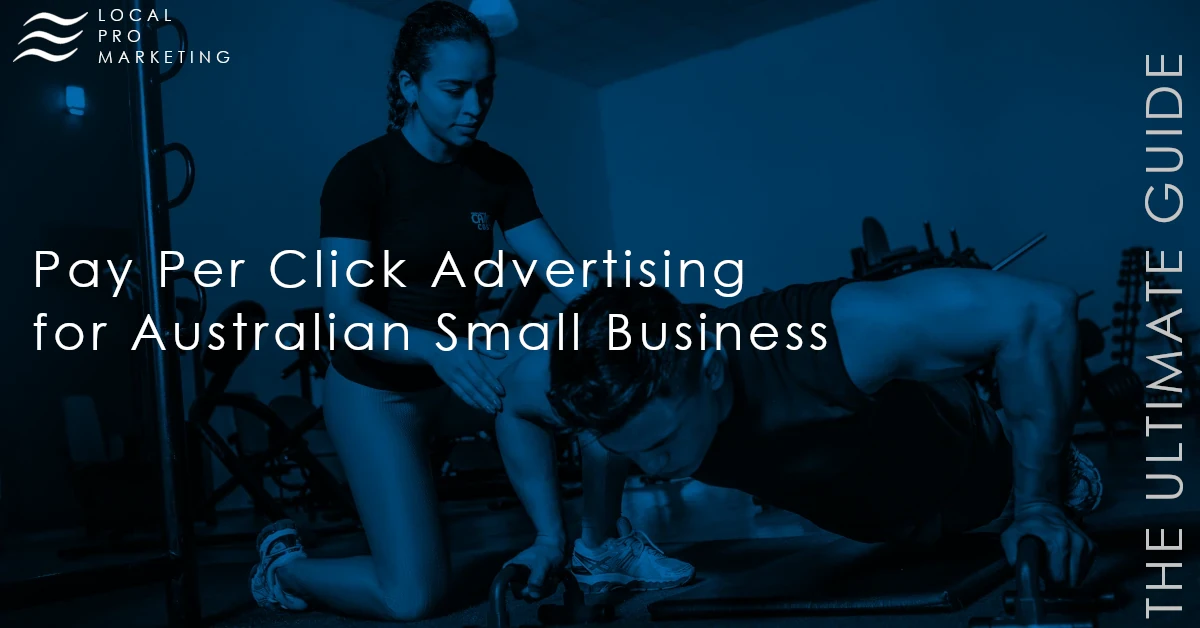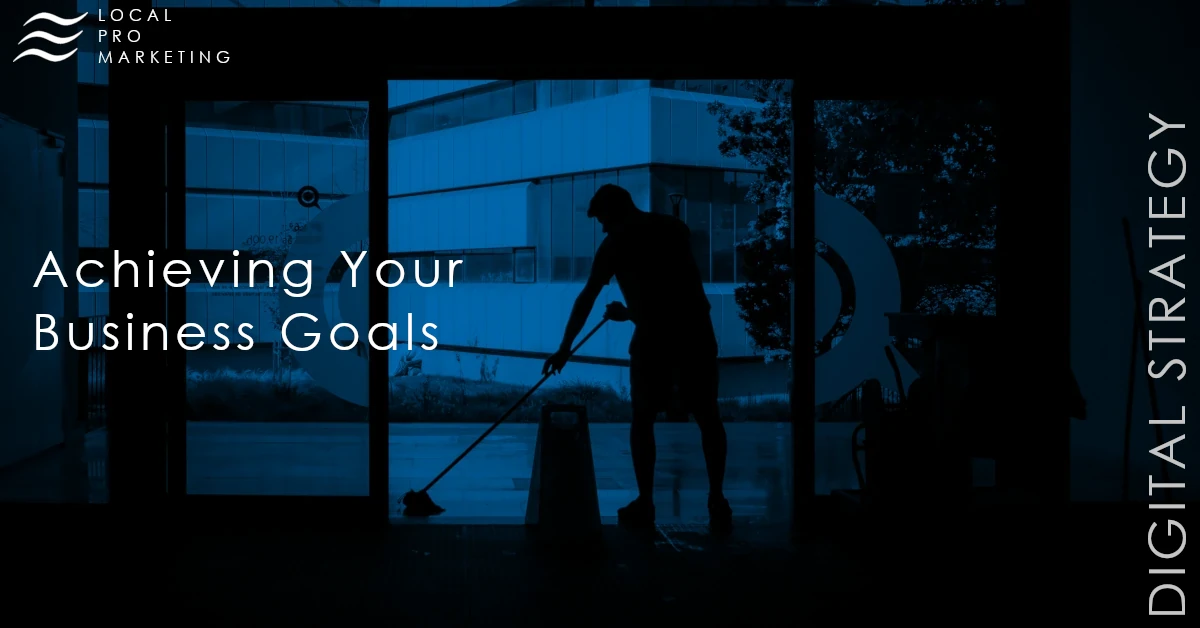Are you struggling to get your small business noticed online? With so much competition out there, it can be tough to stand out from the crowd. However, there’s one marketing strategy that can help you get in front of your target audience and generate more leads: Pay Per Click (PPC) advertising.
PPC advertising is a digital marketing technique that allows businesses to place ads on search engine results pages (SERPs), social media platforms, and other websites. Instead of paying a flat fee for the ad space, businesses only pay when someone clicks on their ad. This makes PPC advertising a cost-effective way to reach a larger audience and drive more traffic to your website.
PPC advertising can be a powerful tool for small businesses, especially those that are just starting out. With a well-executed PPC campaign, you can reach your ideal customers where they are already spending time online, increase your brand visibility, and drive more conversions.
We dive deeper into what PPC advertising is, how it works, and how you can create a successful PPC campaign for your small business. By the end, you’ll have a better understanding of the basics of PPC advertising and how it can help your business grow.

What is Pay Per Click (PPC) advertising?
Now that we’ve introduced the concept of PPC advertising, let’s explore it in more detail. PPC advertising is a digital advertising model in which businesses pay each time a user clicks on one of their ads. These ads can appear in a variety of locations, including search engine results pages (SERPs), social media platforms, and other websites.
When it comes to PPC advertising on search engines like Google, businesses bid on specific keywords related to their products or services. When a user types one of these keywords into the search bar, the search engine will display ads that are relevant to the search query. The ads are usually displayed at the top or bottom of the SERP and are labeled as “sponsored” or “ad.”
One of the key benefits of PPC advertising is that it allows businesses to target their ideal audience with precision. By bidding on specific keywords and creating ads that are relevant to those keywords, businesses can ensure that their ads are only shown to people who are interested in what they have to offer.
PPC advertising can also be highly cost-effective. Because businesses only pay when someone clicks on their ad, they can control their advertising spend more closely and avoid wasting money on ads that aren’t generating results. Additionally, many PPC advertising platforms offer tools to help businesses optimize their campaigns and get the most out of their ad spend.
There are several different types of PPC advertising, including search advertising, display advertising, and social media advertising.

Creating a successful PPC campaign
Now that you have a basic understanding of what PPC advertising is and how it works, let’s dive into how to create a successful PPC campaign for your small business. Here are some key steps to follow:
- Set up a PPC campaign: The first step in creating a successful PPC campaign is to set it up properly. This involves choosing the right advertising platform (such as Google Ads or Facebook Ads), selecting your targeting options, and setting your budget.
- Create effective ads: Once your campaign is set up, it’s time to create your ads. Your ads should be attention-grabbing, relevant to your target audience, and include a clear call to action. You’ll also want to make sure that your ads are in compliance with the advertising platform’s guidelines.
- Choose the right keywords: Keywords are a crucial component of any PPC campaign. You’ll want to choose keywords that are relevant to your business and that your target audience is searching for. Use keyword research tools to find the best keywords for your campaign.
- Set a budget for your campaign: PPC advertising can be highly cost-effective, but it’s important to set a budget and stick to it. Determine how much you’re willing to spend on your campaign, and set bids accordingly.
- Monitor and optimize your campaign: Once your campaign is up and running, it’s important to monitor its performance closely. Use analytics tools to track key metrics such as click-through rate (CTR) and conversion rate. Based on these metrics, you can adjust your ads, keywords, and bidding strategies to optimize your campaign for maximum results.
By following these steps, you can create a successful PPC campaign that helps you reach your target audience, increase your online visibility, and generate more leads for your small business.

Types of PPC advertising
There are several different types of PPC advertising that you can use to promote your small business:
- Search advertising: Search advertising involves placing ads on search engine results pages (SERPs) when users search for specific keywords related to your business. These ads are usually displayed at the top or bottom of the SERP and are labeled as “sponsored” or “ad.” This type of advertising is highly targeted, as you can choose the specific keywords that trigger your ads.
- Display advertising: Display advertising involves placing ads on other websites, often in the form of banner ads or text ads. These ads are shown to users who are browsing content that is relevant to your business. Display advertising is less targeted than search advertising, but it can be a good way to increase your brand visibility and reach a larger audience.
- Social media advertising: Social media advertising involves placing ads on social media platforms such as Facebook, Twitter, and LinkedIn. These ads can be highly targeted based on factors such as demographics, interests, and behaviors. Social media advertising can be a good way to reach your target audience where they are already spending time online.
- Remarketing: Remarketing involves targeting users who have already interacted with your business in some way, such as by visiting your website or making a purchase. Remarketing ads can be highly effective, as they target users who have already shown an interest in your business.
By using a combination of these types of PPC advertising, you can create a comprehensive marketing strategy that helps you reach your target audience and achieve your business goals.

Benefits of PPC advertising for small businesses
PPC advertising can offer many benefits for small businesses, including:
- Targeted advertising: With PPC advertising, you can target your ads to specific keywords, demographics, interests, and behaviors. This means that your ads are only shown to people who are likely to be interested in your business, increasing the chances of a conversion.
- Cost-effective: PPC advertising can be highly cost-effective, as you only pay when someone clicks on your ad. This allows you to control your advertising spend more closely and avoid wasting money on ads that aren’t generating results.
- Quick results: Unlike other forms of advertising, such as SEO or content marketing, PPC advertising can generate quick results. As soon as your ads are approved, they can start driving traffic to your website and generating leads for your business.
- Measurable results: With PPC advertising, you can track key metrics such as click-through rate (CTR), conversion rate, and cost per click (CPC). This allows you to measure the effectiveness of your campaign and make adjustments to optimize your results.
- Flexibility: PPC advertising offers a high degree of flexibility, allowing you to adjust your ad targeting, keywords, and budget as needed. This means that you can quickly pivot your advertising strategy to respond to changes in your business or industry.
By leveraging the benefits of PPC advertising, small businesses can reach their target audience, increase their online visibility, and generate more leads and sales.

Common mistakes to avoid in PPC advertising
While PPC advertising can be a highly effective marketing tool for small businesses, there are some common mistakes that you should avoid. Here are some of the most common mistakes to watch out for:
- Not setting clear goals: Before you start your PPC campaign, it’s important to set clear goals for what you want to achieve. Whether it’s generating leads, increasing sales, or boosting brand awareness, having clear goals will help you measure the success of your campaign.
- Not doing proper keyword research: Keyword research is a crucial component of any PPC campaign. If you don’t choose the right keywords, your ads won’t be shown to the right audience, and you may end up wasting money on clicks that don’t convert.
- Not creating effective ad copy: Your ad copy is what will convince users to click on your ad and visit your website. If your ad copy is weak or doesn’t clearly communicate your value proposition, users will be less likely to click on your ad.
- Not monitoring your campaign performance: Monitoring your campaign performance is essential for identifying areas where you can improve. If you’re not tracking key metrics such as click-through rate (CTR) and conversion rate, you won’t know which ads or keywords are generating the best results.
- Not optimizing your campaign: Even if your campaign is performing well, there is always room for improvement. Regularly optimizing your ads, keywords, and targeting can help you get even better results and improve your return on investment (ROI).
By avoiding these common mistakes, you can create a more effective PPC campaign that generates better results for your small business.

Pay per click (PPC) advertising can be a highly effective way for small businesses to reach their target audience, generate leads, and increase sales. By choosing the right keywords, creating effective ad copy, and monitoring your campaign performance, you can create a PPC campaign that delivers results for your business.
Remember to set clear goals for your campaign, choose the right type of PPC advertising for your business, and avoid common mistakes such as not doing proper keyword research or failing to monitor your campaign performance.
If you’re new to PPC advertising, it’s a good idea to start small and test different ad formats and targeting options to see what works best for your business. With time and practice, you can create a comprehensive PPC advertising strategy that helps you achieve your business goals and grow your small business online.
Thanks for taking the time to read this blog post on Pay Per Click Advertising. Our team at Local Pro Marketing is committed to providing valuable insights and strategies to help businesses succeed in the ever-evolving world of paid advertising. We hope you found this post helpful and informative. Don’t hesitate to reach out to us if you have any questions or leave a comment.









